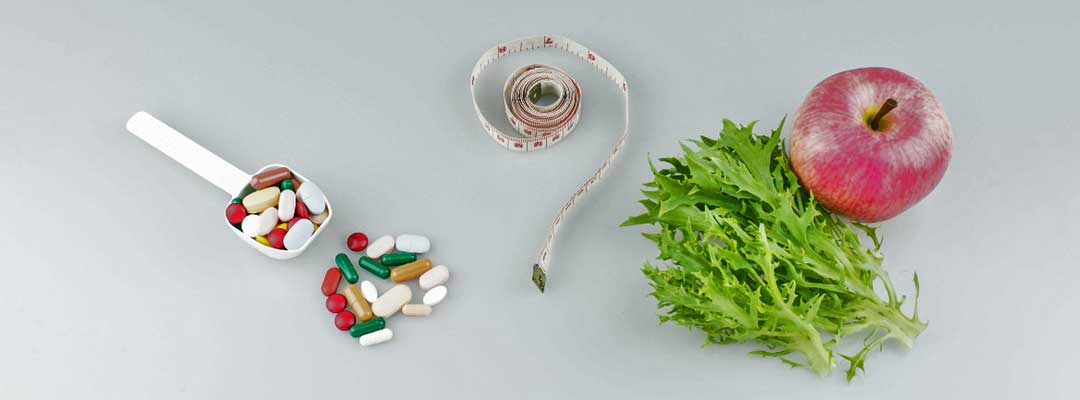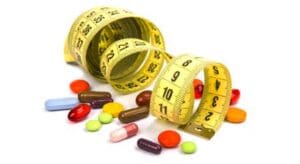
Weight-Loss Pills, sustainable weight loss and long-term health?
Is it true, that weight-loss pills and supplements are the key to quick, sustainable weight loss and long-term health?
Weight-loss pills are the kings of the supplement market. In the year 2000, more than half of the US population was taking at least one dietary supplement per day. Almost 20 years have passed since then, imagine what the numbers are like these days and compare it to the Obesity percentage of US population, that should answer the question about the effectiveness of weight-loss pills.
Let’s determine what a dietary supplement is first… According to DSHEA (The Dietary Supplement Health and Education Act) a supplement is a product (that is not tobacco) included a DIET that contains one or more of the following ingredients; a mineral, a vitamin, a herb, a concentrate metabolite, a botanical, an amino acid, or combinations of these ingredients.
In Thailand recently, after the death of a woman related to diet pills 
- Health supplements are under the category of food products, which is why their marketing is not regulated like medication.
- You can obtain them without a prescription.
- Most of the people using dietary supplements don’t even inform their physicians.
In a paper published in the Journal of American Dietetic Association, they collected samples of different dietary supplements from 73 retail outlets. There were over 4000 separate ingredients in the 402 products that were included in this research. There were 10 ingredients that appeared most often:
Green tea [Camellia sinensis], chromium picolinate, ma huang [Ephedra major], ginger root [Zingiber officinale], guarana [Paullinia cupana], hydroxycitric acid [Garcinia cambogia], white willow [Salix alba], Siberian ginseng [Eleutherococcus senticosus], cayenne [Capsicum annuum], and bitter orange/Zhi shi [Citrus aurantium]. These are the most common ingredients you will come across in the market, 7 of these ingredients are supported by evidence of having no effect on weight loss, the other 3 have a minor effect in the ‘’LAB ENVIRONMENT”.
There is a dramatic increase in damaged liver cases over the last 10 years. I think everybody knows about Herbalife by now, and there have been many 
“Hydroxycut” was “the #1 weight loss supplement” when I was in high school, it caused multiple deaths and many cases of liver damage.
One of the 3 supplements we talked about earlier is green tea [Camellia sinensis], and we’ve all heard people talking about green tea’s antioxidant qualities and weight loss potential. One thing you probably didn’t hear much is green tea can be highly hepatotoxic if consumed in high doses. Catechins found in green tea has benefits no doubt, but it also causes cytotoxicity by damaging the mitochondrial membrane and starts the ROS (reactive oxygen species) formation.
Another one is the famous “Garcinia cambogia” which is known for something very interesting, it has the ability to prevent carbohydrate to fat conversion. As cool as this sounds, it’s massively linked to oxidative stress, hepatic fibrosis and inflammation.
The list goes on and on, for those who are interested to know more about all these compounds and their potential harm and/or benefits, I will link some of the papers used to assist in writing this article [below].
Supplements should be taken for one reason only, to supplement your diet! If you are taking a supplement, it can only be for one reason; because you can’t get enough of that substance from your daily diet. The best example I can think of is “Protein Powder” we take protein powders because we can’t get enough protein in our diet. I take fish oil supplements every day because I don’t eat fish but I don’t want to be deficient in Omega3 fatty acids.
Before you decide to take any of these “magic” weight-loss pills please beware, in the absence of a proper diet or exercise these pills are completely useless. Let’s assume you are following a diet plan and exercise regime, at best these pills might give you a 1-2% percent boost.
Now ask yourself, is it worth it – to take the risk of permanent liver damage or even death in order to lose (maybe) another 100-200gr of weight for each 10kg you lose?
Again, if you have any questions related to the article… reach out to us through our Facebook page, mention my name and the article and I will get back to you as soon as I can.
Efe Atilla
Program Coordination Manager at PhuketFit
Resources:
Halsted C. Dietary supplements and functional foods: 2 sides of a coin? Am J Clin Nutrition. 2003;77(Suppl 4):1001S–1007S.
https://academic.oup.com/ajcn/article/77/4/1001S/4689784
Stickel F. Slimming at all costs: Herbalife-induced liver injury. J Hepatol. 2007;(47):444–446.
https://www.journal-of-hepatology.eu/article/S0168-8278(07)00406-0/fulltext
Zheng E, Navarro V. Liver injury from herbal, dietary, and weight loss supplements: a review. J Clin Transl Hepatol. 2015;3:93–98
http://www.xiahepublishing.com/ArticleFullText.aspx?sid=2&jid=1&id=10.14218%2fJCTH.2015.00006
Michele M, Kymberly DSW, Thomas K, Rebecca N, Mark W, Wei-Yuan H, et al. Acute liver failure induced by green tea extracts: case report and review of the literature. Liver Transplantation.
https://aasldpubs.onlinelibrary.wiley.com/doi/full/10.1002/lt.21021
Bonkovsky HL. Hepatotoxicity associated with supplements containing Chinese green tea (Camellia sinensis) Annals of Internal Medicine. 2006;144(1):68–69.
Patel S, Beer S, Kearney D, Phillips G, Carter B. Green tea extract: a potential cause of acute liver failure. World J Gastroenterol. 2013;19(31):5174–5177.
https://www.ncbi.nlm.nih.gov/pmc/articles/PMC3746392/
Ruchi BS, Deepak KS, Ilze V, Alvaro V. A comprehensive scientific overview of Garcinia cambogia. Fitoterapia. 2015;102:134–148.
https://www.sciencedirect.com/science/article/pii/S0367326X15000544?via%3Dihub
